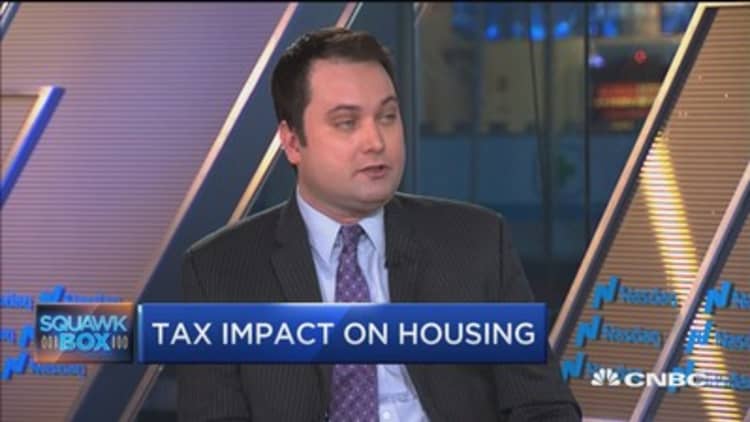
Homeowners in high-tax states on the coasts are going to feel the pinch from the new Republican law overhauling the personal code, according to a Citigroup real estate analyst.
"If you live in New York, Connecticut, or California, you're going to get hurt," said Will Randow on CNBC's "Squawk Box"on Thursday.
On average per household, residents in those states could see their tax bills go up about $3,000, he calculated.
The reason comes down to a change in the GOP tax law having do to with the so-called SALT provision.
The new approach caps at $10,000 a combination of state and local and taxes including property taxes that filers can deduct from their federal returns.
Previously, there was no limit.
To help mitigate that change, the Tax Cuts and Jobs Act almost doubles the standard income tax deduction to $12,000 for individuals and $24,000 for married couples.
But for many residents in high-tax states, that accommodation won't be enough to keep their tax bills from increasing.
"People in the higher-income groups … can afford the incremental spend," Randow said. "Maybe Christmas is lighter. But I don't think they're going to get hit."
For others, owning a home might not be the incentive that it used to be in those states, leading to more sellers and lower prices.
The National Association of Realtors is forecasting home prices to be down 10 percent for California, Randow pointed out.
First time homebuyers might also be hesitant due to higher prices, he added.
But on the other side, Evercore ISI analyst Stephen Kim , "This is sort of a backdoor way of removing a subsidy for housing that we've seen in this country for almost a century."
Many experts blame that "subsidy" and the lax mortgage lending standards of the past as factors that fueled the housing price bubble that peaked in 2006 and then burst.


